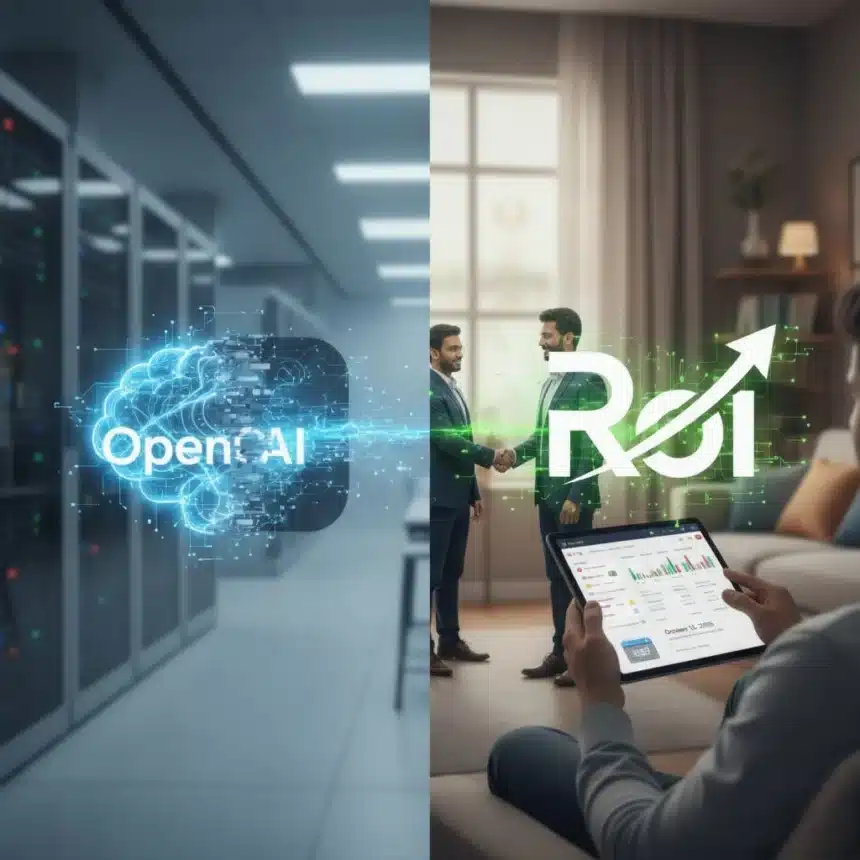Key Highlights
- OpenAI acquired Roi, an AI-powered finance app that helped users view and trade across all their investment accounts in one place
- Its focus on creating deeply personalized and adaptive software experiences
- The Roi app will cease its consumer services on October 15, 2025. Only co-founder Sujith Vishwajith is joining OpenAI; the rest of the four-person team is departing.
- The startup had previously raised a $3.6 million funding round from notable investors, including Spark Capital, 35 Ventures (Kevin Durant’s firm), and Google’s Gradient Ventures.
OpenAI, the powerhouse behind popular AI tools like ChatGPT, has made a strategic move by acquiring the AI-powered finance startup, Roi. While the exact price tag remains a secret, this acquisition signals OpenAI’s growing ambition to become a central hub for consumer-facing AI applications, moving far beyond its origins as just a chatbot company.
Roi, founded in New York in 2022 by Sujith Vishwajith and Chip Davis, built an application focused on simplifying and personalizing the world of investing. The app allowed users to link all their financial accounts—including stocks, bonds, and retirement savings—into a single, unified dashboard. Crucially, it also offered a seamless, one-stop trading experience across popular platforms like Robinhood, Coinbase , TD Ameritrade, and WeBull, all without charging users extra fees. Roi’s mission was to make investing more intuitive and accessible for everyone.
The Founders and the Future
As part of the deal, Sujith Vishwajith, one of Roi’s co-founders, will be joining the team at OpenAI. However, the rest of Roi’s small, four-person staff will be departing the company.
Vishwajith shed some light on the motivation behind the sale in a post on X (formerly Twitter). He explained that while Roi initially set out to create the most personalized financial experience, the team soon realized that the power of personalization extended far beyond just finance—it was the future of all software.
This sentiment was echoed in a blog post from the Roi team: “The products we use every day won’t remain static, predetermined experiences. They’ll become adaptive, deeply personal companions that understand us, learn from us, and evolve with us.” This philosophy of building deeply personal, adaptive user experiences is clearly what OpenAI is eager to integrate into its own suite of products.
What Happens to Roi’s App?
Unfortunately for its current users, the Roi app is quickly winding down its consumer services. The application will officially shut down on October 15, 2025. This suggests that OpenAI’s interest was not in running the existing finance app, but rather in acquiring the underlying technology, the talent, and the core ideas around personalization and financial data management to integrate into its larger AI platforms.
The Road to the Acquisition
Before being acquired by one of the world’s most valuable startups, Roi had already garnered significant investor interest. The company had successfully raised a $3.6 million funding round. This round was led by the venture capital firm Spark Capital, and it saw participation from a diverse and notable group of investors. These included:
- 35 Ventures, the venture capital firm belonging to NBA superstar Kevin Durant.
- Gradient Ventures, the artificial intelligence-focused investment arm of Google.
- Balaji Srinivasan, a prominent angel investor and the former chief technology officer at Coinbase.
This strong backing highlights that the financial and tech communities recognized the potential in Roi’s approach to AI-powered finance and data personalization long before OpenAI stepped in.
Why This Matters for OpenAI
While the Roi acquisition might seem minor compared to some of the massive deals in the tech world, its significance lies in what it reveals about OpenAI’s long-term strategy.
OpenAI is actively looking to transform its current tools—which are largely used for generating text, code, or images—into proactive, indispensable “go-to consumer apps.” The ability to securely handle and analyze complex, sensitive data like personal finance information, and then use that understanding to create a truly individualized user experience, is a huge step in that direction.
The acquisition of Roi gives OpenAI a boost in both:
- Talent: Bringing co-founder Sujith Vishwajith, a key leader in the personalization space, into the company.
- Technology: Gaining insights and technology for managing diverse user data and making software feel uniquely tailored.
This move underscores that OpenAI doesn’t just want to be the engine behind other apps; it wants to build the essential, adaptive, and personalized consumer apps of the future. By acquiring a company focused on deep user personalization, OpenAI is accelerating its evolution from an impressive AI chatbot into a comprehensive, indispensable personal assistant for everyday life










